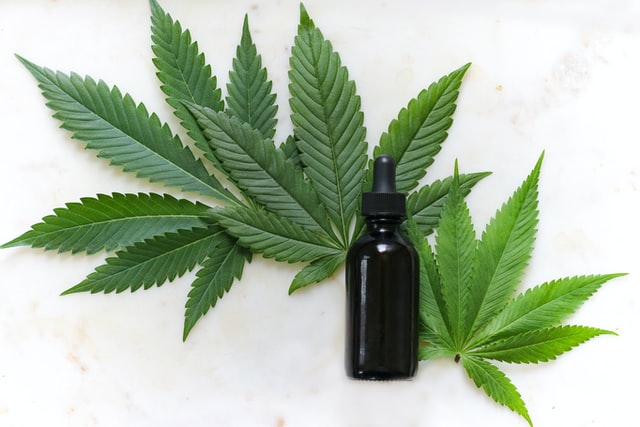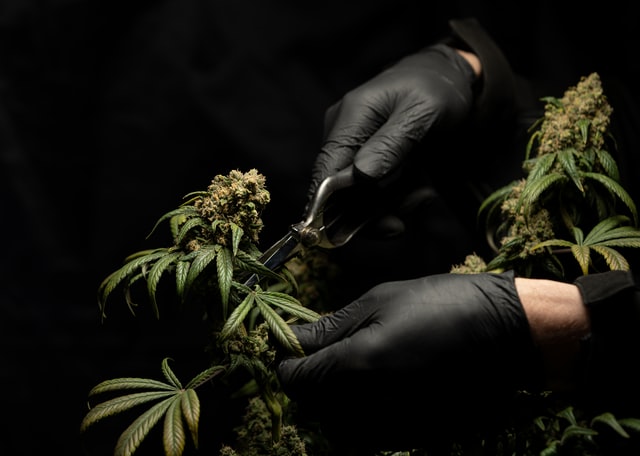 Photo by Kimzy Nanney on Unsplash
Photo by Kimzy Nanney on Unsplash
While CBD has not been on the market for very long, a host of myths and misconceptions related to it sure had enough time to spread and attract people’s attention. Unfortunately, such untrue statements often ruin the reputation of cannabidiol in some circles and stop people from experiencing its beneficial effects.
First of all, CBD is not really intoxicating and is not an illegal substance. As long as the product complies with federal and state laws, you can safely buy it in dispensaries, or even supermarkets. CBD is not a magical cure for every health problem in existence, either. Instead, it simply has beneficial effects on our bodies and can make the symptoms of certain diseases more bearable. In case you want to know more, read on! Here are some of the common CBD myths – debunked!
CBD Is Intoxicating
The first common CBD myth we need to address is that it is an intoxicating compound. There are some people who believe that CBD is a legal form of marijuana and that it can make you high. In reality, it is not true and will not happen. While CBD is a natural compound found in hemp and cannabis plants, it does not have major psychoactive effects like THC does. If you take THC, you may start to feel physically and mentally impaired for the next few hours. On the other hand, even if you take a high dose of CBD, you are still perfectly in control.
While it is worth noting that some CBD products do contain THC, its amount is too small to make a difference. And in case you really do not want to ingest any THC, you can always buy CBD oil with no THC in it. Just remember to be sensible when taking CBD before driving. Although it is not intoxicating, it can still make you drowsy.
CBD Is Illegal
It is often believed that CBD is an illegal substance. In the United States, it actually depends on whether CBD in a given product comes from hemp and on the amount of THC in the said product. For instance, CBD oil that was manufactured from hemp and contains less than 0.3% of THC is perfectly legal in the majority of states.
CBD Is a Miracle Cure
An unfortunate myth about CBD is that it is a miracle cure. It is an assumption that often leads to people instantly dismissing CBD as a fraud and never trying it. In reality, CBD may not be a cure-it-all substance, but it does have many beneficial effects on the body.
CBD acts as an anti-inflammatory agent, can ease stress, help develop healthy sleep patterns, and even alleviate pain. In addition, according to recent research, CBD seems to be helping people manage serious health conditions, such as epilepsy and arthritis.
So, while it is not a miracle drug that will solve all physical and mental problems one could possibly have, cannabidiol might still prove to be helpful if you are willing to give it a try.
 Photo by CRYSTALWEED cannabis on Unsplash
Photo by CRYSTALWEED cannabis on Unsplash
CBD Works Immediately
Unlike some medications, CBD may require some time to show its effects. In general, it depends on the way you took it. For instance, if you ingested cannabidiol in pill or capsule form, it may take an hour before you notice any effects. If you inhaled CBD via vaping or smoking, you may need just a few minutes for it to kick in. The same goes for topical products, as topicals are applied directly to the skin and immediately absorbed into the bloodstream.
All in all, it is important to remember that CBD needs time to reach our system first. Once it does, some of the compounds are broken down in our liver while others are stored in fat cells. Once the compounds are released back into our system, we feel the effects of cannabidiol, but it might take up to a few hours for that to happen. So, keep that in mind when using CBD and do not expect instantaneous results.
CBD Will Show Up on Drug Tests
The last common CBD myth we need to address is that it can show up on drug tests. CBD itself is not targeted by most drug tests. On the other hand, THC is. Full-spectrum CBD products contain trace amounts of THC, which could show up on drug tests if consumed frequently or in high doses.
In case you need to do random drug tests at work, you might want to stick to broad-spectrum or isolate-based cannabidiol products. Broad-spectrum products contain no THC while isolate-based items only include cannabidiol, neither of which should show up on a drug test.
In Conclusion
CBD has a great reputation among its users, but it is still surrounded by many myths and misconceptions. To help you understand this compound better, we debunked some of the most common CBD myths out there.
To sum up, it is important to remember that CBD is not an intoxicating substance and will not make you high. It may also be perfectly legal in your state as long as it has less than 0.3% of THC. This compound also will not miraculously cure all your physical and mental problems, but it may have beneficial effects on your general health and certain conditions
Finally, while CBD itself may not show up on drug tests, some full-spectrum products contain small amounts of THC that may. So, if you need to do random drug tests at work or school, it is better to use broad-spectrum CBD products or pure CBD.
Hopefully, we managed to clear up some of your doubts concerning cannabidiol!

